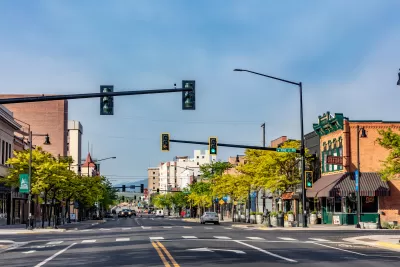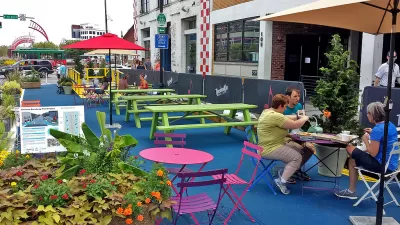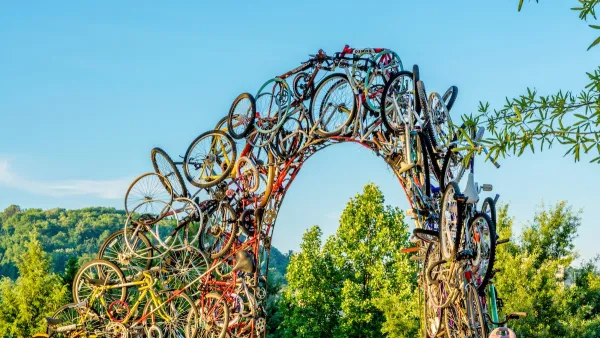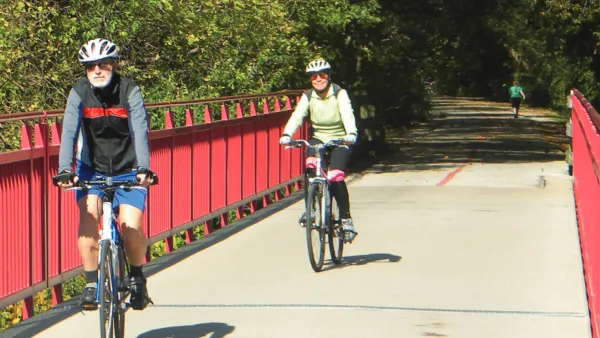Community organizations are taking action to transform the city and pave the way for permanent infrastructure improvements.

"There are a lot of factors that lend themselves to individual happiness, but it seems that transportation is often the key," writes Allie Kane, Transportation Demand Management Specialist with Missoula in Motion. "We’re constantly on the move so how we get places matters. Designing cities and providing enough options so that it’s quick, easy, and safe to get somewhere without a car is critically important."
"A robust sustainable transportation system has a multitude of benefits that increase our happiness – lower levels of stress, more opportunities to connect with your community, improved health, improved mood, more time to spend on hobbies, and significantly lowered risk of injury and reduced fatalities from car crashes to name a few." To promote these benefits, "Missoula in Motion’s Sunday Streets program embraces this notion each year, closing off 1 mile of roadway to cars and opening it up for people of all ages and abilities to recreate, engage in activities with local organizations, and experience their streets in a whole new way."
The article extols the benefits of a walkable, green, and people-centered built environment and gives examples of tactical urbanism projects that have spurred the potential for permanent changes to Missoula's public infrastructure, such as the Neighborhood Greenway installed on Kemp Street. "Missoulians are starting to embrace tactical urbanism in a variety of temporary projects meant to catalyze long-term change throughout the city. It’s been so effective at creating safer and more climate-friendly streets that these two organizations are putting together a toolkit to help community members navigate this process in their own neighborhoods."
Missoula in Motion plans to release the toolkit this summer.
FULL STORY: Sustainable Missoula: Tactical urbanism in Missoula puts people at heart of urban design

Maui's Vacation Rental Debate Turns Ugly
Verbal attacks, misinformation campaigns and fistfights plague a high-stakes debate to convert thousands of vacation rentals into long-term housing.

Planetizen Federal Action Tracker
A weekly monitor of how Trump’s orders and actions are impacting planners and planning in America.

In Urban Planning, AI Prompting Could be the New Design Thinking
Creativity has long been key to great urban design. What if we see AI as our new creative partner?

King County Supportive Housing Program Offers Hope for Unhoused Residents
The county is taking a ‘Housing First’ approach that prioritizes getting people into housing, then offering wraparound supportive services.

Researchers Use AI to Get Clearer Picture of US Housing
Analysts are using artificial intelligence to supercharge their research by allowing them to comb through data faster. Though these AI tools can be error prone, they save time and housing researchers are optimistic about the future.

Making Shared Micromobility More Inclusive
Cities and shared mobility system operators can do more to include people with disabilities in planning and operations, per a new report.
Urban Design for Planners 1: Software Tools
This six-course series explores essential urban design concepts using open source software and equips planners with the tools they need to participate fully in the urban design process.
Planning for Universal Design
Learn the tools for implementing Universal Design in planning regulations.
planning NEXT
Appalachian Highlands Housing Partners
Mpact (founded as Rail~Volution)
City of Camden Redevelopment Agency
City of Astoria
City of Portland
City of Laramie





























